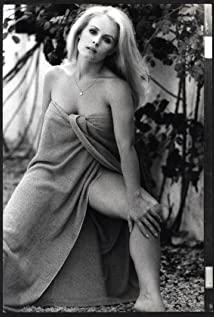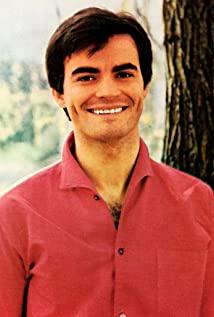There is no doubt that marriage is described as "half angel, half devil". This is by no means groundless. Of course, most families have more angelic sides, but what I want to express here is a kind of already clearly visible in modern society. The sense of crisis is also an eternal topic of human nature. For women, before marriage, she is an uncompromising goddess in the eyes of men, and the title "dear" has an unquestionable sense of holiness and is irreplaceable. But when she had a child after marriage, her beauty and beauty began to fade away. When "darling" was unknowingly reduced to "wife" and "wife", and "wife" was no longer the only one in her husband's heart, she would rely on him. What to control the lover's heart, and what to rely on to mend that unfading marital grief? Only by pouring more love and effort into children and lovers, like a savior, trying to modify the vicissitudes of the sea and beautify the barrenness of the earth. Most marriages are maintained by women, who seize the fleeting sense of joy in their bitterness and enjoy themselves. They take their children as gifts from God and cannot put it down, while their beloved husbands can only be a little virtuous in front of the elf and become a foil and a condiment. Marriage may only be a little better than "Three Minutes of Heat". When love becomes a spoiled habit, love cools down and turns into the past. For men, "sleeping in the same bed for 20 years is indeed a bit of aesthetic fatigue". However, we must abide by the social rules that stand in front of us. We must be kind, and we must not let our tempers come and go freely. Aesthetic fatigue is a physiological reaction, and it will naturally produce nerve blunting after spending a long time together, which is impossible. But some people just refuse to accept their fate. The indomitable bigwigs hold high the banner of "waiting with a lifetime", and carry out "eternal youth" to the end, clamoring that "men are not born to be monogamous animals". The free world of love gallops freely, while spitting out fragrant rhetoric, while watering the endless mysterious jungle. They do not admit that their actions are betrayal, and they turn their aesthetic fatigue into countless audiences. This is a free society. It is a matter of course that "I dedicate my youth to you", but if you add a "men" at the end, this will not be right. It is not about charm and affection, but It's a debauchery like a flood. But having said that, no one can prevent and obstruct the matter of mutual affection. It is purely a personal choice, and it is useless to accuse it, and sometimes it is even more ridiculous. But no matter what, people should stop in moderation, be erotic and polite, and don't play too much. After all, the society
A family of four, the young husband and wife are loving and loving, and the two little guys are also cute and well-behaved. During the holidays, they happily drove to the park. Under the caress of the sun, they sucked the milk of nature, took a peaceful nap and strolled. ,chat. Looking back at the piles of embroidery, this is such a warm and wonderful rural style painting, as if it has a poetic feel like the Garden of Eden, which is fascinating. The opening of Varda's film is so light and freehand, with vivid mirror language like an oil painting, intertwined with Mozart's music, as if the Impressionist works are beating gongs and drums in triumph, which is incomparably beautiful. However, this kind of perfection seems to have gone to its opposite, something too beautiful, even if she was once parachuted into the world, it would become illusory with the pouring light. Gently lifting the veil of Impressionism, the sincerity and strong eye-catching contained in Fauvism permeates it with extreme laissez-faire. In my opinion, this is a gorgeous and cruel "horror film" without any terrifying elements but straight to the heart. ", revealing a "crime of love" that was suddenly triggered in the budding state.
The François family is so perfect that it seems to make God jealous, so he unleashes a rattlesnake, trying to make waves and break their "no crisis, no shadow, no unhappiness", like a small town. A dreamlike life like a signboard. In fact, this ideal state is difficult to exist. In a seemingly perfect family, there are always some hidden defects, but in the eyes of outsiders, it will never show its face. Only the consonance between each other can stick its head out and perceive the dribs and drabs. unusual. Therese, is a beautiful and kind woman, she trusts her husband so much, she decides to eat him, as if her world is full of "François", and she has never noticed another man who has a shred of this feng shui treasure. occupation. Her husband, François, is a naive man with an inch of his own, with an unquenchable desire that has never really been vented. He naively believed that happiness could be added endlessly. He described to his wife that the family was like a garden. Although the apple tree he planted had already blossomed and fruited well, he found another apple tree outside the garden, with more flowers, more fruit, and more happiness. . And what he said to his girlfriend was: You are like an animal, my wife is like a plant, and I love nature. When it comes to love, he believes in intuition and is extremely greedy. When he and Émilie exchanged smiles at the post office, the branches of red apricots burst into turmoil, as if instigating him to fall into a sweeter love nest. The rift in the François family really flashed here. Therese took her husband too seriously, and this just encouraged François to "change the track". François greedily took advantage of the unique advantage that his wife had given him invisibly, and he was open-hearted, jumping on the wall, seeing the needle, and being overwhelmed, but he had no guilt in his heart. He is still in the ear of his lover, and he soothes Émilie's guilt by expressing affectionately that he is "never tired of the new". In fact, Émilie would have no guilt in the first place. She is a free woman. Compared with the intellectual Therese, she is more wild, and even an irresistible seductive femininity. As François says in the film, he's more crazy about Brigitte Bardot than Jeanne Moreau, so Émilie is naturally pretty. Free love is advocated by modern society, but marriage should also be sacred and inviolable. People give up principles for freedom Taking off his sunglasses, what appeared was a pair of selfish eyes. Human desire is a bottomless pit given a chance. If you can't consciously self-examine yourself and set the forbidden area yourself, you will make the surrounding land fall into a mess, and the complacent François is a negative teaching material. Although he implements the established procedures precisely, how a person who is in love can easily hold back a blooming smile, no matter how to hide it, how to find the state of being at home, he will be extraordinary. The halo of happiness used to be so radiant, but the battle strategy of "footing on two boats" that he calmly planned completely disintegrated the originally ordinary and precious happiness.
With a woman's natural acumen, Therese found her husband unusually happy during this time, so she asked casually, with no intention of temptation. François tried to hide at first, but then came a 90-degree drift. He took Therese's trust as a tonic, and put on an air of sincerity. He poured out cruel truths, confessed his innocence, and was a complete mess. This kind of truth-telling is truly breathtaking. To her husband's astonishing reconciliation, Therese simply replied, "If only you were happy doing this," before laying down next to him for a nap. Wow, the understatement is outrageous, the world is full of wonders, and the French couple described by Varda is a perfect match, a big house and a big one, and the cooperation is pleasing to the eye and seamless. However, when François opened his eyes, the short-lived happiness had fallen irreversibly into the abyss, and he had a premonition of something unexpected, and ran to follow Therese's trail. However, when he finally found his wife, the facts presented to him coldly and unmistakably told him the words "drowned". Whether Therese committed suicide or stumbled was not stated in the film, only a vague, brief flashback in which she was in the water as if she was about to grab a branch on the shore, only to die. But I think one thing is for sure: Therese was sacrificed for love. François broke her weak heart. The previous "Long Live Understanding" was actually her last benevolence in despair, and she fulfilled François with her own sorrow. Maybe she can tolerate her husband's "one-night stand", but she can't accept his fearless empathy. Therese is gentle and kind, and at the same time she is weak and ignorant. She, who has always been peaceful, has used the most jaw-dropping and hysterical way to shatter the house. This family can no longer be accurately defined as "home", because the lack of mother's love is irreparable, and her young children are destined to suffer the pain of the adults' emotional affairs. The love between François and Therese is an unbalanced love whose apparent peace is destroyed by a common fault. In fact, I think they can coexist. If François can cherish his wife a little more, or Therese can be more tolerant of his children, there is still hope for maintaining the surface peace, but it may not be long-term. Therese thinks her husband is much more important than the child, how can Watching "fat water flow into the field of outsiders" and indulging François' greed, where did she put her self-esteem? Love to the end is overwhelmed and unrecoverable, love Yoyo, hate Yoyo, the heart can no longer be retained, the love is difficult to continue, the love is so deep that people are lonely.
Long pain is worse than short pain. If it is broken, let it be scrapped. Agnès Varda has her own abacus. She separates them from yin and yang, in disguise to set off the theme of the film: such a perfect marriage in the eyes of others can also be seen in an instant. Fragmented. When happiness comes again as expected, the death behind it may be easily erased, and the original happiness will not change beyond recognition. The people are gone, Émilie As he wished, he entered the world of François, taking the place of his wife, and he loved the man's two children like his wife, and took care of them exactly the same. The end of the film is as "perfect" as the opening: the new family of four roams happily in the idyllic scenery, just as they have always been—except for the change of hostess. This scene makes people sweat, and the harmonious scene always looks a little wrong. There is a piercing fragrance in the forest where the autumn is already deep, and an indescribable taste comes to my heart. In my opinion, when one's own happiness comes at the cost of stifling the happiness of others, it is a sin. François ate what was in the bowl and looked at what was in the pot. The limited happiness should have been disturbed and overdrawn long ago, but he could still enjoy the nourishment of love at ease. Did God favor this guy too much? For happiness, one of Varda's films can express her philosophy as a film artist: in the foreground is a sunflower, and behind it is the blurred and out-of-focus figures of a family of four, exuding a beautiful and eerie atmosphere. Varda was both deeply mocking and silently looking forward to it. She vaguely expressed an attitude: happiness is an arrangement that can never be guessed in a lifetime, and the most distant desire in her heart. We all say the word "happiness", but is there a comparative or superlative to happiness? Even if we minimize the meaning of happiness to contentment, can there be a more contented, most contented state after there is contentment? Will François' bottomless gratification make him repeat the story of yesterday? If that's the case, will God still favor this man who plays with his happiness intuition? Another key to thinking about at the end of the film is: Is there any "uniqueness" in the happiness between men and women? After replacing one of them, can the happiness be so indistinguishable? If happiness has only one appearance standard, no matter how beautiful it is, what interest is there in life? The mythical world tells us secretly that "Eve is a rib of Adam". In the vast sea of people, we believe in fate and believe that love can bring ultimate happiness. A man is an amorous seed who is unwilling to hang himself on a tree. We are only struck by the lightning and thunder of youth at the moment when we have the same scent. Whether or not we are "unique" mostly depends on the intensity of our actions for love. And every happy ride is a journey of life and an unforgettable memory. After François found a new love, his happiness remained the same. As for whether there was a difference in happiness, only he knew best. He felt that it was something outsiders could not measure with the naked eye.
Movies are always illusory, taking us to places that cannot be reached in reality, and into the depths of reality. Movies are only responsible for restoring the problem, not solving it. Agnès Varda shows us a beautiful, cruel, obscure "village of desire," but that doesn't mean everything around us related to happiness is as vague as a movie. Life is real, to have a healthy body, raise eyebrows with loved ones, snuggle with each other, and perceive the ups and downs of the ordinary with a pair of eyes that discover beauty, presumably, this is "happiness".
View more about Le Bonheur reviews










